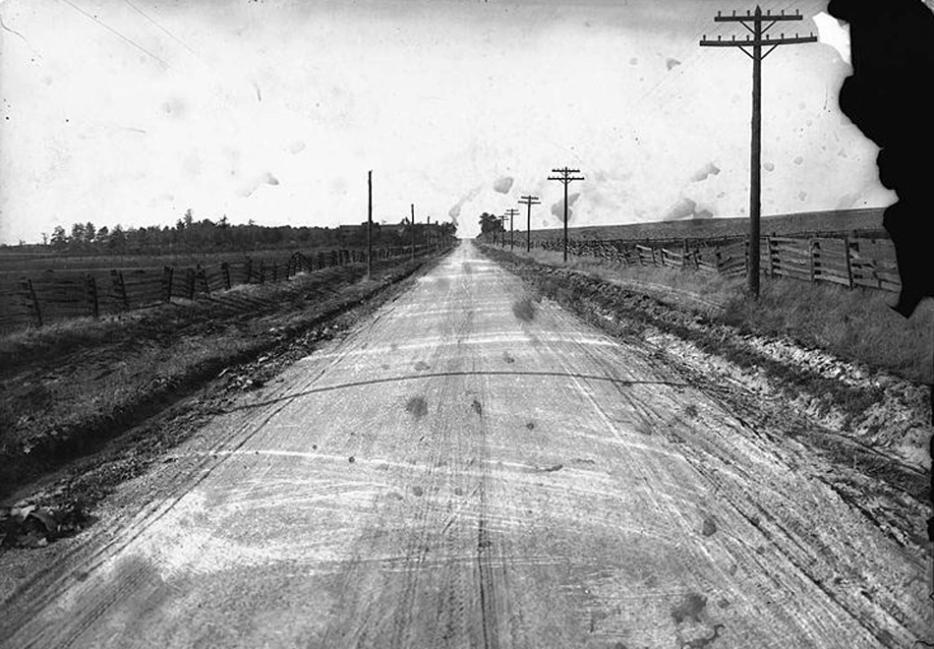Rob Ford has done one thing for Toronto with greater success than arguably any mayor before him—that is, convulse the city’s left in a discussion about whatever are we to do with the suburbs. Somehow, he’s convinced a large number of people that his base is actually the suburban working class, which is a bizarre state of affairs indeed because why don’t they understand how wrong he is?
As we cast about for explanations, there’s one strain of thought that pokes its head up, expressed (for example) by onetime mayoral candidate and recent NDP aspirant to a provincial seat in Scarborough Adam Giambrone, as he described the planning failures that built the suburbs:
“Even short visiting trips mean more than one bus and much walking because of the sprawling nature of the community and the fact that plazas and apartment towers are set back from the road. Residents are being punished, it seems, for the terrible mistakes of ‘60s and ‘70s planning.”
The first part of that quote is certainly accurate. The second part is comforting but utterly wrong, and wrongheaded. Nobody except suburban voters imposed the suburbs on themselves. And for the majority of suburban residents, they chose to live in the suburbs, and definitely don’t see living there as a punishment.
It would be a mistake to forget that those suburbs were filled with people who made their own choices about their own lives for their own reasons. And while there’s nothing more popular these days than surveys showing that people really want dense, walkable neighbourhoods, in the Greater Toronto Area the vast majority of people are settling in the suburbs.
How do we reconcile these two facts? For some, there isn’t a contradiction: some suburban areas are adopting more urban, walkable designs as they grow. For the rest, we can use Occam’s Razor and say that people are lying to themselves when they take phone surveys but are telling the truth with the single biggest purchase most of them will ever make. Yes, some people want urban spaces—but not everyone, and more importantly, there’s only so much they’re willing to pay.
And there’s nothing wrong with choosing affordability! We should be making that choice available to people who want to live near jobs and transit, too. Instead, we make building in cores all over the continent an ordeal, in the misguided belief that we can plan our way out of the problems that planning creates. All the while, rural municipalities continue to convert farmland to subdivision with unseemly haste.
So where does this leave the suburban poor? The usual answer is that, somehow, urbanists need to win over the suburbs and show them that walkable, multi-use spaces are good for everybody. Just one problem: the people who chose the suburbs precisely because they aren’t downtown are still there. Scarborough’s Guildwood neighbourhood has fewer working-age and young people than the city’s average, but it has way more senior citizens—almost the exact opposite of downtown’s Kensington. Guildwood’s seniors vote, and if they hadn’t cast their ballots for Ford, they would have for one of the other people competing for the outraged suburban vote in 2010.
Those older, whiter, wealthier suburban voters are busily defending the elements of suburban living that they cherish—where do you think the hostility to bike lanes and light rail comes from?—and can reliably be found opposing three-storey condos for being too dense. The notion that this is going to be solved by having urbanists go to more community meetings is probably a fantasy.
And, to be clear, this is a serious public policy problem, not by any means restricted to Toronto’s interlocking culture wars. As The Economist’s Ryan Avent says, “one thing society might want to discuss is whether leaving land-use decisions mostly in the hands of a metropolitan area’s local, rich elite is likely to produce the best outcomes or is maybe just a recipe for inefficiency and rent-seeking on a jaw-dropping scale.”
The suburban poor are getting a legitimately raw deal, and they have every reason to want to find someone to blame. But before they blame the planners of the 1970s, or downtown bike-riding pinkos, for a system that makes it hard for them to live a normal life, they might try directing their ire at the people in their midst who, in 2013, still insist that if they clap their hands hard enough, Tinkerbell will come back to life, gas will be cheap again, and the roads will be clear and speedy.






